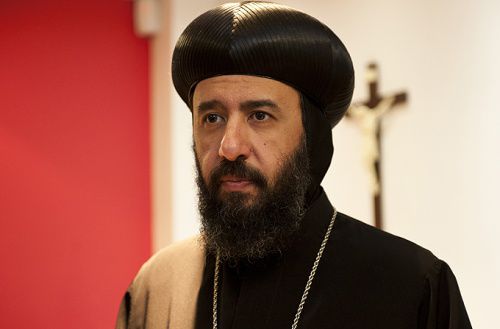Support of religious freedom for all those being persecuted was reiterated at a conference in the nation’s capital following outcry over comments made by Sen. Ted Cruz (R-Tex.). Joseph Cella, spokesman for In Defense of Christians, told CNA that Cruz’s statement “actually united the parties, enhanced the dialogue, and further strengthened their resolve to protect Christians and others who are persecuted for their faith throughout the Middle East and elsewhere.” After his controversial keynote address at the recent In Defense of Christians summit in Washington, D.C., Sen. Cruz called the reception he received by some in the audience “a virulent display of hatred and bigotry.” Cruz spoke Sept. 10 at the event, which was being held to discuss the plight of persecuted Christians in the Middle East. The event was attended by 1200 people including patriarchs and bishops of over a dozen Christian churches from countries throughout the Middle East. Cruz began his speech by stating that “tonight we are all united in defense of people of faith who are standing together against those who would persecute and murder those who dare disagree with their religious teachings.” He went on to draw a parallel between the present plight of Middle Eastern Christians and the Jews who fled “extermination” to settle in the state of Israel in 1948. He stated that “today, Christians have no greater ally than the Jewish state.” That statement received negative reactions from some members of the audience. Cruz then told the audience that “those who hate Israel hate America. And those who hate Jews hate Christians.” He added that “if you hate the Jewish people, you are not reflecting the teachings of Christ” and “if you will not stand with Israel and the Jews, then I will not stand with you.” After repeated outcries from some in the audience, he left the stage. Many in the audience were “Christian citizens of states that maintain uneasy truces with Israel,” wrote Michael La Civita of the Catholic Near East Welfare Association, explaining why Cruz met some opposition when he said that “Christians have no greater ally than the Jewish state.” Cruz’s remarks “either demonstrate he does not understand the realities of the Middle East or that he chose to exploit them to energize his political base as he contemplates a run for president in 2016,” La Civita said. Bishop Angaelos of the Coptic Orthodox Church in the United Kingdom, who participated in the D.C. summit, also challenged the accusations leveled by Cruz. “Having spoken at this IDC Summit on the plight of Christians in the Middle East, and particularly in Iraq and Syria, I take personal exception to sweeping statements made about those in attendance as espousing ‘bigotry and hatred…against Jews and Israel’,” he said Sept. 12. Bishop Angaelos decried “divisive and inflammatory language” about the summit, which he said featured a “large gathering” of those in “very real pain,” with relatives who were victims of persecution. “In light of the current very real challenges, this is not a time for such divisive and inflammatory language that demonizes communities and causes rifts between them when their collaboration is most needed,” he stated. Kathryn Jean Lopez, editor-at-large of National Review Online, pointed out that the summit materials state that IDC seeks to “protect the human rights” of “all religious groups.” “In this sense, ‘Christian’ refers not only those who confess the Christian faith, but also Muslim, Jew, Hindu, Bhuddist, Baha’I, and even the freedom to confess no religious belief at all,” the summit’s handout stated. Bishop Angaelos also emphasized this point the day after Cruz’s speech. “As Christians, I think we were misrepresented last night. No one here hates, but many here are feeling pain,” he said to the audience. “We are in defense of Christians. In defense of Jews. In defense of Muslims. In defense of those who have no faith,” he added of those persecuted for their beliefs. “That is the message of this summit, that is the message of those attending, and that is the message of Christianity. Not a contrived message that brings us out as hateful people here.”

